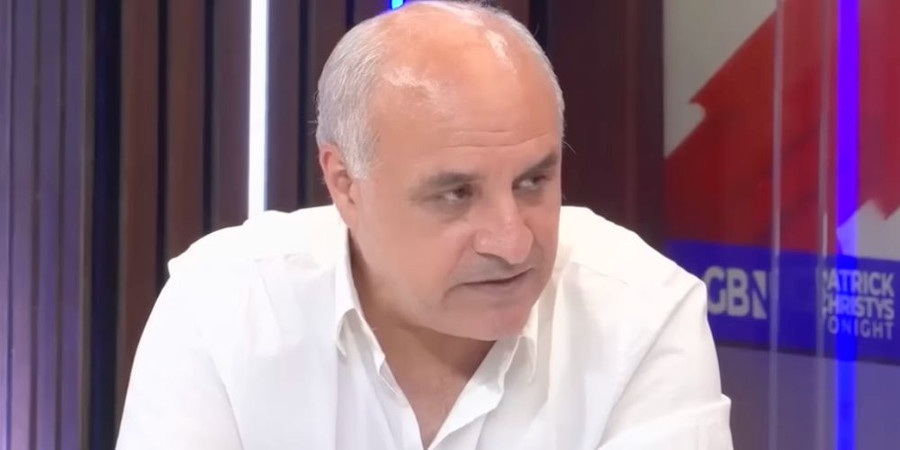WASHINGTON - Barack Obama's inept war against the resurgent Islamic State is becoming the major issue in the GOP's 2016 race for the presidency.
After months of ineffective U.S. bombing raids to halt the advances of ISIS's armies in Iraq and elsewhere, they have been making alarming territorial gains - raising new and disturbing questions about the president's failed war-making strategy in the region.
ISIS forces have not only seized the city of Ramadi, but have taken control of the Syrian city of Palmyra and now threaten other strategic targets in and around the area that is just 130 miles from Damascus.
Those gains and the White House's silence on its latest battlefield failures, have triggered a storm of criticism from Republican presidential hopefuls and others in the GOP leadership.
And that has turned the spotlight on a new campaign issue by putting the blame for the resurgent terrorist war in the Middle East directly on Obama and the Democrats.
"If you fought in Iraq, it worked. It's not your fault it's going to hell. It's Obama's fault," said South Carolina Sen. Lindsey Graham last weekend at the Republican Lincoln Dinner that drew nearly a dozen presidential contenders.
One by one, the attacks are comparing the situation the U.S. was in under the previous administration when the terrorists were in full retreat, and what the U.S. faces now in the aftermath of Obama's hasty withdrawal, followed by a too-little, too-late response after ISIS seized major tracts of territory, and took control of oil facilities to finance their expansion.
"This deterioration of our physical and ideological strength has led to a world far more dangerous than when President Obama entered office," said Sen. Marco Rubio of Florida.
"We've seen [the Islamic State] sweep across multiple states, commit brutal atrocities and attempt to establish a caliphate," Rubio said.
Republicans have largely been focusing their political fire power on jobs and weak economic growth that slowed to a crawl late last year and in the first three months of this year. But now, with polls showing growing concern over a resurgence of global terrorism, the GOP is raising the volume on an issue that also poses dangers for our own homeland security, according to intelligence officials here.
"President Obama and Secretary [of State] Clinton hastily withdrew troops, threw away the gains of the surge, and embarked on a broader policy of pivoting away from the Middle East," Wisconsin Gov. Scott Walker said on his Facebook page last week.
The takeover of Ramadi, a virtual stone's throw from Syria's capital, stunned GOP critics who angrily placed the blame where it belongs: at the doorstep of the Oval Office.
In a sharply-worded Senate floor speech, Sen. John McCain, chairman of the Armed Services Committee, said the terrorist victory "should lead our nation's leaders to reconsider an indecisive policy and a strategy that has done little to roll back" ISIS's advances in Iraq and Syria.
Fearing that the GOP's attempts to place the blame on Obama and their party were gaining traction, Democrats have tried to shift the blame to President George W. Bush and his 2003 invasion of Iraq.
But Jeb Bush shot back in a campaign appearance in New Hampshire Wednesday that "ISIS didn't exist when my brother was president."
"There were mistakes made in Iraq, for sure, but the surge created a fragile but stable Iraq that the president [Obama] could have built on," he added.
We're likely to hear a lot more about Obama's feckless foreign policies in the months to come, especially if ISIS and its al-Qaeda accomplices in the region build on their latest advances.
The growing strength of ISIS's bloodthirsty armies in Iraq, Syria and elsewhere in the Middle East, are only part of the story of Obama's failure to grasp the larger threat they pose.
Defense officials say the war against the Islamic State will likely continue for another three years, at a minimum, and probably much longer than that. "This is a really formidable enemy," one official said this week.
But it isn't just global terrorism that has loomed larger than ever under Obama, but other countries as well who are testing how far they can go in taking advantage of his naiveté and timidity.
Since Obama took office hoping to "reset" relations with the Kremlin, Russian President Vladimir Putin has seized eastern Ukraine and has set his eyes on adjoining states in his dreams of reestablishing a "Greater Russia."
At the same time, China has built airstrips and claims sovereignty over the South China Sea's international shipping lanes.
And Iran has been jerking Obama around in his naive belief that Tehran can be persuaded to shut down all of its nuclear laboratories and abandon its ambitions of military hegemony over the Middle East.
Putin has outsmarted Obama at nearly every turn in the Ukrainian seizure, dividing our European allies to the point where he had little to fear from NATO or the U.S. for his brazen military actions.
How did he pull it off? University of Maryland economist Peter Morici succinctly explained what happened in a recent column titled "The Poverty of Obama's Foreign Policy."
"Russia sold oil and gas to Europe, modernized its military and co-opted the Germans. Now Berlin simply won't forgo the Russian market to support the Ukraine, and has oddly persuaded Mr. Obama that it would be destabilizing to adequately arm the Ukrainian military," he wrote Wednesday.
A world beset by terrorist wars, territorial conquests and destabilizing nuclear ambitions has become a much more dangerous place in the Age of Obama.
It awaits new U.S. leadership from a fully experienced president who knows what he's doing and isn't going to be pushed around.





